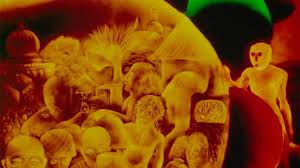
Where Did We Get the Idea of God?
People searching for God have probably asked themselves this question at one time or another.
And the short answer is, it depends on whose god you’re talking about.
Worship of a god or gods is shrouded in the cloud of history, or rather, pre-history. The concept of God as most modern people envision him/her results from any of three abstract ideas or their combination, according to Wikipedia, and of course, the Bible, the Koran and similar sacred books.
The abstractions range from God as “…the deification of an esoteric, mystical or philosophical entity or category” to God as the “Ultimate,” the “greatest good,” the “absolute infinite” the “Transcendent,” to God as “the ground of being.”
Many may not be familiar with these concepts because they originate in the philosophical world of Greek philosophers like Aristotle, who lived in the fourth century before Christ (BC). At some point – definitively with the ideas of Thomas Aquinas in the 13th century after Christ (AD) – these notions became mixed with the biblical idea of a God who is human-like.
In His Image
“So God made man in his own image,” says the Book of Genesis.
Some skeptics say it should read, “Man made God in his own image.” And there is truth in that because we project onto God all kinds of human traits, good and bad. But more on that later.
Surprisingly, though Genesis is the first book in the Hebrew Bible, it’s not the earliest. The books of Psalms, Amos, 1st Isaiah, Hosea and Micah are believed to be the earliest, written between 745 and 586 BC. Genesis is among the books written in the period 583-330 BC.
All pre-date Aristotle and the Greek philosophers, however, and the Bible is believed to contain many stories and myths from other religions that may be even more ancient.
For Christians and Jews, the Hebrew Bible is the original source for our belief in God. It promotes the vision of a personal God who gets angry, repents of his anger, is jealous and petty but also compassionate, loving and merciful, someone who can be seen “walking in the garden in the cool of the day,” as Genesis describes him.
Giant Leap
This idea of a “human” God took a giant leap for Christians when God became a human being as Jesus of Nazareth. My friend, Ted Wolgamot, a psychologist who writes a blog at “Dr. Ted’s Web,” (http://drtedsweb.com) wrote recently of the scene in Luke’s gospel about Jesus coming upon a funeral procession in which a widow, accompanied by a group of her friends and neighbors, was on her way to bury her only son.
Jesus, says the gospel, was “moved with pity” for the woman, and he did something unheard of by raising him from the dead.
“Notice in the story,” writes Ted, “that Jesus never asks the woman about how faithfully she has fulfilled all the commandments. Jesus never asks her how impeccably she has obeyed all the rules and all the traditions and all the laws. Jesus never asks her anything. He sees her tears. And the tears tell him all he needs to know.”
But the most amazing thing about the Judeo-Christian idea of God isn’t that he/she exists or is the author of life but that God would care about us. Together with ancient people, we ask “Why?”
“What is man that you think of him,” asks Psalm 8, “the son of man that you care for him?”
The traditional answer would be, “It’s a mystery.” For me, a better answer is that we simply don’t know.
The Hairs of Our Heads
That God should care for humans in general is one thing, but that God should care about me in particular and each of the billions of others on earth is another. Yet, says Jesus in Mathew’s gospel, “even the hairs of your head are all numbered.”
Another question regarding the origin of the idea of God pertains to humans’ receptivity to him/her.
“…The belief in a supernatural agent who operates in the world is universal to all cultures because it is hard-wired in the brain,” according to research on the subject in an article in the Wall Street Journal.
The article provides several explanatory theories, based on belief’s evolutionary benefits, but doesn’t mention the possibility that God is ultimately responsible for that human trait.
Leave it to us contemporary humans to ignore the obvious.



